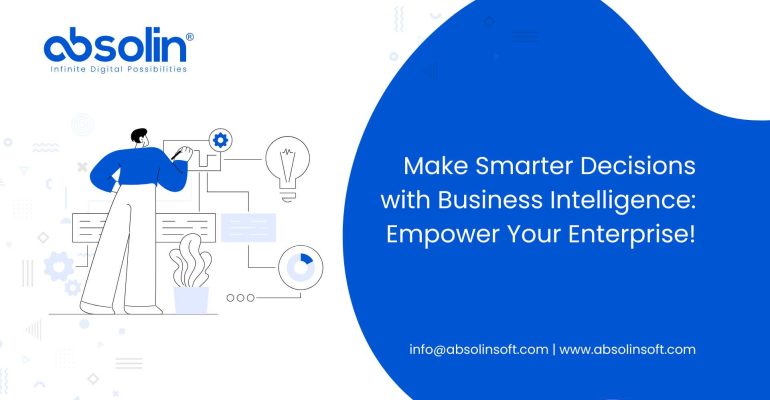How Business Intelligence Drives Informed Decision-Making in Modern Enterprises

How Business Intelligence Drives Informed Decision-Making in Modern Enterprises
In today’s fast-paced and data-driven world, the ability to make informed decisions quickly is crucial for the success of modern enterprises. Business Intelligence (BI) has emerged as a key tool in this process, enabling organizations to turn vast amounts of data into actionable insights. By leveraging BI tools and technologies, businesses can improve efficiency, optimize operations, and maintain a competitive edge in the market. Here’s how BI drives informed decision-making in modern enterprises.
1. Data-Driven Insights
At the core of Business Intelligence is the ability to transform raw data into meaningful insights. BI tools aggregate data from various sources, such as sales reports, customer feedback, market trends, and social media, and present it in a digestible format through dashboards, reports, and visualizations.
Benefits:
- Enhanced Understanding: BI allows decision-makers to understand trends, patterns, and anomalies in their data, providing a clear picture of what is happening in their business.
- Predictive Analysis: Advanced BI tools use predictive analytics to forecast future trends based on historical data, helping businesses prepare for potential challenges or opportunities.
2. Improved Efficiency and Productivity
BI tools streamline the decision-making process by providing real-time data and analytics. This eliminates the need for manual data processing and analysis, which can be time-consuming and prone to errors.
Benefits:
- Automated Reporting: BI systems automate the generation of reports, ensuring that decision-makers have access to the most up-to-date information without delay.
- Faster Decision-Making: With instant access to relevant data, executives and managers can make quicker, more informed decisions that positively impact the business.
3. Enhanced Operational Visibility
Business Intelligence provides a comprehensive view of an organization’s operations. By integrating data from various departments—such as finance, marketing, and supply chain—BI tools offer a holistic perspective that can reveal inefficiencies and areas for improvement.
Benefits:
- Identifying Bottlenecks: BI can pinpoint operational bottlenecks, allowing businesses to address them before they escalate into larger issues.
- Resource Optimization: With a clear understanding of operational performance, businesses can allocate resources more effectively, reducing waste and maximizing output.
4. Better Customer Insights
Understanding customer behavior and preferences is critical for businesses looking to improve customer satisfaction and loyalty. BI tools analyze customer data, such as purchase history, feedback, and engagement metrics, to provide insights into customer needs and preferences.
Benefits:
- Targeted Marketing: By analyzing customer segments, businesses can tailor their marketing strategies to target specific groups more effectively.
- Improved Customer Service: BI insights can inform customer service strategies, ensuring that businesses address customer concerns promptly and effectively.
5. Competitive Advantage
In a competitive market, businesses that leverage BI are better positioned to stay ahead of the competition. BI tools enable businesses to monitor market trends, track competitor performance, and identify emerging opportunities.
Benefits:
- Market Intelligence: BI provides businesses with valuable insights into market dynamics, helping them to anticipate changes and adapt their strategies accordingly.
- Innovation: By analyzing industry trends and customer feedback, businesses can identify opportunities for innovation and develop new products or services that meet emerging demands.
6. Informed Strategic Planning
Strategic planning is a critical aspect of business success, and BI plays a vital role in shaping long-term strategies. By providing data-driven insights, BI tools help businesses set realistic goals, allocate resources effectively, and measure progress over time.
Benefits:
- Goal Setting: BI enables businesses to set achievable goals based on data-driven insights, ensuring that strategies are aligned with market realities.
- Performance Tracking: BI tools allow businesses to monitor the success of their strategies in real time, making it easier to adjust plans as needed.
7. Risk Management
Risk management is essential for protecting a business from potential threats. BI tools can analyze data to identify potential risks, such as market fluctuations, supply chain disruptions, or financial instability.
Benefits:
- Proactive Mitigation: By identifying risks early, businesses can take proactive measures to mitigate their impact, reducing the likelihood of costly disruptions.
- Data-Driven Decision-Making: BI provides the data needed to make informed decisions that minimize risk and maximize opportunities.
Conclusion
Business Intelligence is a powerful tool that empowers modern enterprises to make informed, data-driven decisions. By providing real-time insights, improving efficiency, enhancing customer understanding, and offering a competitive advantage, BI helps businesses navigate the complexities of the modern marketplace. As businesses continue to generate and collect vast amounts of data, the role of BI in driving informed decision-making will only become more critical. Organizations that embrace BI are better equipped to turn data into actionable insights, ultimately leading to greater success and sustainability.





